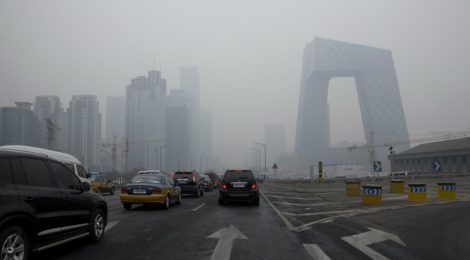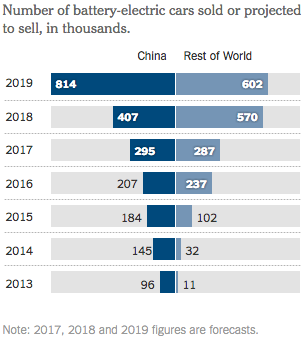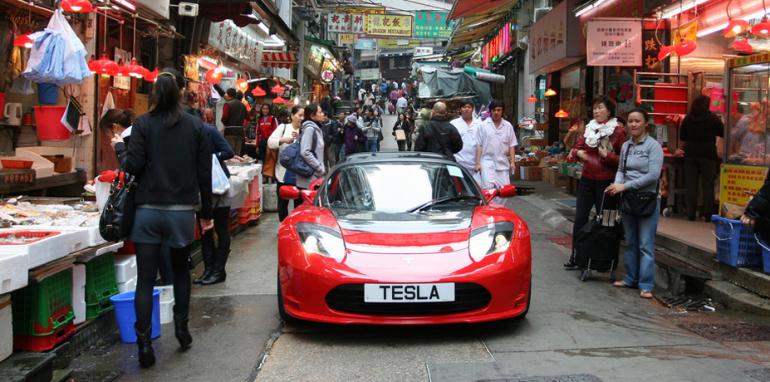
Is China Guiding the World Toward an Electric-Car Future?
China is the reason why many automakers around the world are investing massively in the development of electric cars. China, the world’s leading country in the production of electric cars, is forcing European, American, Japanese and Koreans automakers to speed up the pace of transformation from engines powered by gasoline to ones powered by renewable resources.
Electric cars are an increasingly common sight in cities like Beijing, Shanghai and Shenzhen, and by 2025, one out of five cars sold in the country will have to run on alternative fuel. If world’s carmakers, such as Volkswagen, want to keep selling regular cars in China, they will have to sell more alternative-energy cars as well.
Beijing’s success will reshape the global auto industry. This push to revolutionise the car industry finds its roots in the need of reducing environmental pollution in the densely populated areas all over the country. China is already the world’s largest maker and seller of electric cars, 300,000 of which will be sold on the Chinese market this year: three times the number of cars expected to be sold in the United States. Recent data from LMC Automotive forecasts that by 2019 the total number of electric cars sold in China will exceed 800,000 units compared to only 600,000 vehicles sold in the rest of the world.

China buys more General Motors-branded cars than Americans do. Even Tesla, the pioneer American maker of luxury electric cars, has found its fortune in China; together with other global manufacturers, such GM and Volkswagen, Tesla is planning to move much of its research, development and production of electric cars into the Middle Kingdom. Some of the world’s best electrical engineering talents are recruited in China, cause here the number of companies involved in the production of the parts essential to assembling electric cars is growing fast. This is happening in conjunction with an overall improvement of performance and reduction of cost of electric cars.

Critics outside China say Beijing is using unfair support to create national champions that could overshadow international competitors. However, although China’s auto manufacturing skills have incredibly improved, Beijing has yet to create a single car model that become popular abroad. Even within borders, consumers still largely prefer cars made by joint-ventures formed by Chinese and global companies – namely Volkswagen, Ford and Chevrolet. Chinese electric cars are inexpensive, and not as much desirable as foreign imported cars.
Moreover, some Chinese electric car makers have already pulled out of the market. Faraday Future, a California start-up of Chinese ownership which aimed to unseat Tesla as electric car champion, walked away from its planned €1 billion electric car manufacturing factory in Nevada, due to cash problems of its Chinese financier. Other Chinese electric car makers are overstating their sales too.
The environmental benefits of this ‘green revolution’ will be hardly seen in the immediate future. Almost three-quarters of China’s energy still comes from coal, which is worse than oil when in terms of gas emissions. Also, Chinese automakers still lag behind foreign competitors in electric-vehicle battery technology. Companies such as the Japanese Toyota are already in control of much of the advanced technology behind the durability of electric batteries. Nevertheless, electric cars make sense in China: Chinese crowded cities imply shorter driving distances, while the extensive high-speed rail system reduces the need for long-distance road trips.
Starting with the former Premier Wen Jiabao, and more recently with President Xi and Premier Li, the production of electric cars has received huge political and economic support from the government. The path towards a green and more sustainable environment is set, but the road ahead is long and full of challenges.




